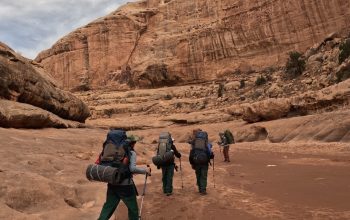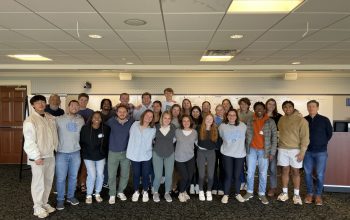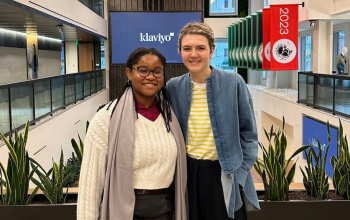From a war zone to the newsroom: Luke Baker ’95 on the power of learning resilience
Journalist Luke Baker sought respite from the rigors of reporting about the Iraq war with a quick trip to Amman, Jordan. Unfortunately, the war followed him. A terrorist bomb ripped through the lobby of his hotel, the Grand Hyatt. Moments later, explosions detonated at two nearby hotels.
It was November 2005. At the time, Luke was the senior correspondent for Reuters responsible for coverage of Iraq. Just two years prior, he had been embedded within the U.S. Army during its invasion of the country.
Luke survived the attack in Jordan. But the incident served as a chilling reminder that life can often blindside you when you least expect it.
“It’s the times when you think that you’re on the safest ground, when your guard is down, that can become the most dangerous,” said Luke. His experiences served as the foundation of his 2016 book, Dateline Baghdad, written after returning to England.

Luke will deliver the keynote address at the 2020 Final Selection Weekend Finalists’ Banquet. He plans to share how his Carolina and Morehead-Cain experiences helped shape his career in journalism.
Aspiring to be a journalist since the age of 13, whenever Luke read the foreign news pages of national newspapers while at school in Dorset, he looked in particular for the Reuters credit line. Seeing Reuters, as someone once told him, “meant the story was true.”
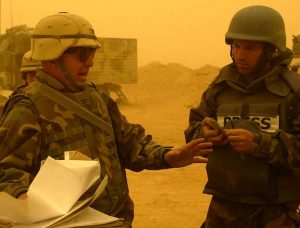
His first job out of college involved writing scripts for PBS’s MacNeil/Lehrer NewsHour. He began each shift by sifting through scores of stories pouring in from the Associated Press, Agence France-Presse, Reuters, and other wire services to prepare for the evening’s Newshour.
Not surprisingly, Luke knew even then that he wanted to do his own original reporting, and that he wanted to do it overseas.
“I came to a point where I wanted to actually be going out there and be finding this news myself, and not just sitting here re-writing it,” said the one-time editorial page editor of The Daily Tar Heel.
In the fall of 1997, he bought a book on Amazon about “how to become a foreign correspondent” and moved to Johannesburg, South Africa, to work as a freelance journalist for USA Today.
“I was 24 years old, and I had no ties, but I knew what I wanted to do,” Luke said. “I took a risk, but it was a calculated risk.”
Six months later, Reuters came calling. The Toronto-based news service asked him to work as a correspondent for South Africa, Angola, Zimbabwe, Namibia, and Malawi. Luke has since reported from more than 40 countries and has served as Reuters’s bureau chief for Brussels, Jerusalem, and Paris.
Though he’s never claimed to have a “master plan,” he said, Luke has always been focused, working on his skill set and leaning toward the next challenge.
“Because of interests, because you’re keeping your mind open to opportunities and because you want to constantly learn, you’re honing things in the direction you want to go,” said Luke, who graduated with degrees in English and international affairs at Carolina. “The roots you put down and the training and education you have allows you to spot these things and to seize them.”
The projects he undertook as part of the Summer Enrichment Program included working with police in Denver, Colorado, to reduce juvenile criminal gang activity and improving his Spanish while traveling in Latin America. Luke said these experiences showed him the power of growing a strong sense of resilience.
“All of these trips were journalistic in their own way because they taught me how to be self-sustaining, to take the risks I thought I needed to take, and to show the right initiative, and I don’t think a year has gone by where I haven’t been able to draw from those experiences,” he said.
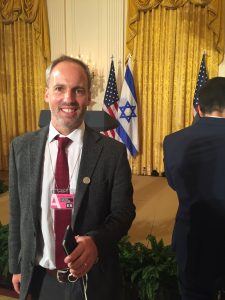
Graduating seniors of all majors, as they prepare to enter the workforce, should seek to observe foreign policy’s role in how countries interact and engage with one another, said the London-based international affairs correspondent for Europe.
“The underpinnings of so much business and trade and commerce are geopolitical, and it’s really important that students are thinking about those issues, too,” Luke said. “There is always this constant need to understand.”

